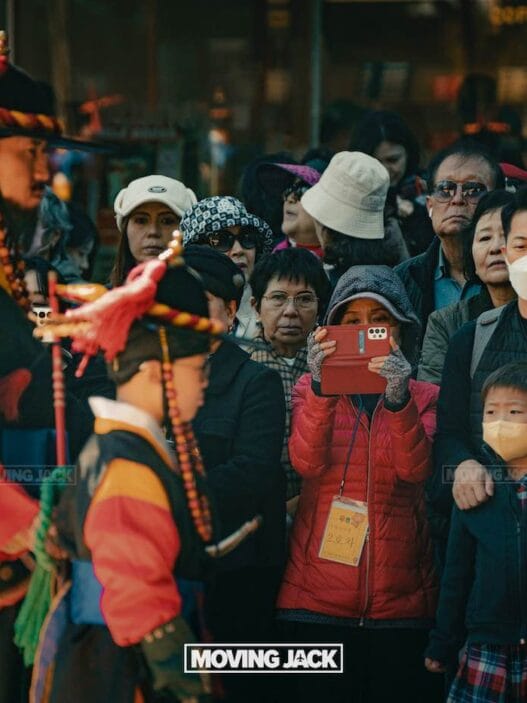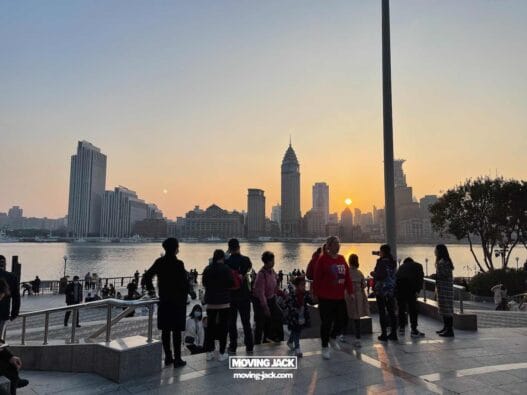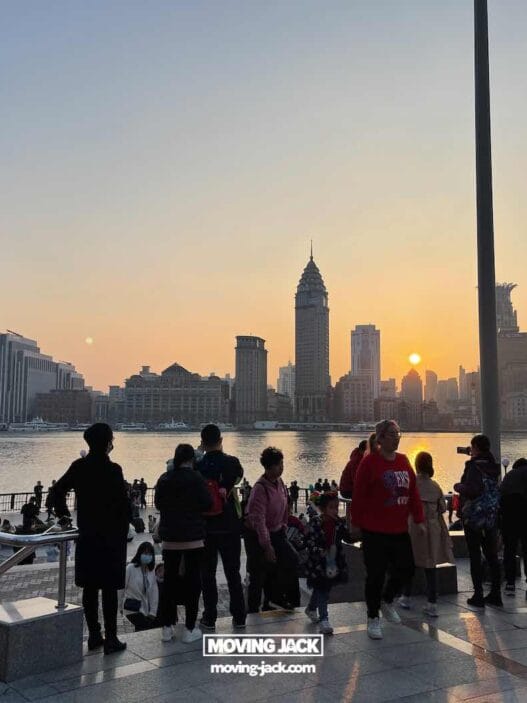Let’s get moving! Moving abroad for three months can be both thrilling and a bit overwhelming.
It differs from living abroad for 6 months or a year. Obviously, it’s shorter, but that means you’ll have to make different decisions compared to staying longer.
Relocating abroad for 3 months is a perfect way of discovering if moving abroad is something for you. Moreover, many countries offer visas that are valid for up to 90 days. This means that it saves you lots of paperwork compared to staying longer.
Let me share what I’ve learned after moving abroad together to China, Iraqi Kurdistan, The Netherlands, and South Korea, so you can have a great experience abroad as well.
Key Takeaways
- Moving abroad for three months is a great way to explore living abroad without too much hassle.
- It might be too short to really establish great social connections.
- Look into work possibilities right away to possibly extend your stay.
Table of Contents
7 Benefits of Moving Abroad for 3 Months
Living in another country for three months has several benefits compared to staying longer:
- Less Paperwork: Many visas are valid for 3 months, meaning you won’t have to deal with the bureaucracy of long-term residency applications.
- No Housing Contracts: Without signing long-term leases, you avoid the hassle of binding agreements and large deposits typically required for a full-year rental.
- Reduced Financial Commitment: You can avoid paying for long-term utilities.
- No Need to Deregister: When you move abroad for a longer period, deregistering from your home municipality is a headache, but with a 3-month stay, you can skip that!
- Career-Friendly: A short time abroad can fit into many career plans, especially if you’re working remotely or on a career break, without worrying about a big gap.
- Career Boost: Living abroad for three months can make your resume stand out. Many companies value the experience of living in different cultures. A short-term stay abroad shows employers that you’re adaptable and open-minded and have gained unique insights that can enhance your professional and personal growth.
- Test the Waters: It’s an ideal way to test if living in a new place is something for you.
Pro Tip: I would start connecting with people right away when I arrive in a new place. Reach out, and even tho you’ve just arrived, start looking forward and see if there are any possibilities of working in your new country. Establishing these social connections takes time, but three months should be enough. Considering you’re there on a 3-month tourist visa it’s smart to see what the possibilities are to extend your stay through a work visa.

Why You Should Move Abroad for 3 Months
1. Moving Abroad Isn’t Just for Extroverts
People say you need to be social and outgoing when moving abroad, or you can become quite lonely because you need to build a social network from scratch.
From my experience, it’s quite the opposite!
When moving to a new country, you’ll meet other people who have the same mindset as you. They also like to explore new places and have an international mindset. This makes it a lot easier to connect. And in my experience, people are very willing to help others abroad.
So, if you’re not the most social extrovert, don’t stress it; things are different when living abroad.
2. You Never Know What Life-Changing Experiences Await
You never know what incredible people or life-changing experiences are waiting around the corner. Getting out there vastly improves your chances of meeting interesting people and opening opportunities.
3. Why Three Months Abroad Is a Real Adventure
Moving abroad for three months can be a thrilling adventure. It offers a chance to experience a new culture and food, and even improve your language skills. You get to live like a local! You’ll notice that it’s much different than a week’s holiday. Living abroad can become quite addictive!
4. Living Like a Local
Staying abroad for the long term is entirely different than a holiday. You’ll discover way more unique places and learn more about local customs and habits. This makes the connection with your new place much stronger. Whenever I left a place such as Shanghai or Erbil, I left with a heavy heart.
The memories and social connections abroad are incredibly special and will stay with you forever.
5. Fresh Perspective
Living in a different country also gives you a fresh perspective. You learn to appreciate what you have at home while diving into another culture. You can see your place back home from a different angle.
Why You Shouldn’t Move Abroad For 3 Months
Here are some reasons to reconsider before packing your bags.
More Than Just Packing
Moving isn’t just about packing. It involves finding a place to stay, managing bills, and dealing with transportation. From my experience, you need to be flexible and be able to deal with sudden changes and setbacks. If that’s not your cup of tea, then moving abroad might not be for you.
Dealing with Unexpected Challenges
When going overseas for a few months, you’ll face unforeseeable issues. Sometimes, you will have to come up with creative ideas to solve those problems. If you’re not a creative “problem solver,” this might impact your experience of living overseas.
Cultural Adjustment
Adjusting to a new culture is challenging. It takes time to feel comfortable and understand local customs. Three months might not be enough to adapt. You could spend the whole time just trying to figure out how to order a coffee! And when you get the hang of it, three months might already have passed.
Three Months Might Not Be Enough
Three months might be too short. Because you’ll be busy, time will fly, and before you know it, three months have passed. If you have a hard time adjusting to new surroundings, then moving abroad might not be a great choice.
When you do go, all these things mentioned above will help you grow tremendously. Much more than you would have grown personally at home, I’m sure of that!
How To Move Abroad For 3 Months
Obviously, it’s easier said than done, but moving abroad surely is possible.
Here are some tips to help you get there without losing your mind.
1. Research Your Destination, but don’t overdo it: Researching your destination is smart, but in my experience, you can only do so much research. It doesn’t matter which place you research; it will be different in real life.
That’s why I think it’s best to focus on only three things: What’s allowed regarding work with the visa, what the costs are in general, and where your interest lies!
I’ve always been interested in Asia, so going to China was an easy decision. But I probably would have had an amazing time as well in Japan or Thailand. So don’t focus too much on a particular country.
Write down your skills and try to see if countries have a big market for those skills.
When I went to China I knew beforehand that there was a major club scene. As a DJ I knew that there would be possibilities of performing there. Later, it turned out that the music scene was huge, so with any music skills, there are many opportunities. But if you’re a native English speaker (which I’m not) you’ll also have many opportunities, especially in Asia. Personally, I would build a brand online before going and start giving private English lessons abroad for a higher rate. Just an idea!
Find out what’s possible, and go for it because the journey and experience don’t solely depend on the country you go to.
2. Make a Plan: When you’ve set your mind on a certain destination, start making a plan. Share your idea with as many people as possible. Whenever you are at a birthday party, family gathering, with colleagues (who you can trust), share the idea of wanting to go abroad for a while and you’l vastly improve the chances of anyone helping you. It needs to be in your mindset and main focus to wanting to move abroad.
Make a Dropbox folder on your computer and save everything about relocating. This way, you’ll always have it with you when needed.
Consider costs for housing, food, and transportation. It’s smart to have extra cash for unexpected expenses.
3. Organize Your Documents: Make sure your passport is valid at least 6 months before departing (for any travels, actually). Also, get the necessary visas (see a list of countries offering 90-day visas below). A checklist for your documents can help keep everything in line.
4. Find Housing: Moving abroad for a few months means you won’t have to rent an entire house for a year. This makes it a lot easier to find a place to live as there are many options online:
- Agoda – A popular platform for booking hotels and stays across Asia.
- Booking.com – They offer more than just hotels, give it a try!
- FurnishedFinder – Primarily for travel nurses, this site lists furnished rentals across the US, making it easier to find temporary housing.
- Hostelworld – For budget travelers seeking hostels worldwide, offering both shared and private rooms, including coliving spaces.
- Local Facebook Groups – Ideal for connecting with expats, locals, and other digital nomads.
- Nomador – A house- and pet-sitting platform popular among French speakers.
- RemoteYear – A premium co-living service with structured experiences, social events, and travel itineraries.
- TrustedHousesitters – Similar to Nomador but more popular among English speakers. Annual membership is required.
- VRBO – A reliable alternative to Airbnb, especially for long-term US rentals.
- Worldpackers – A platform offering live-and-work arrangements worldwide, great for travelers seeking cultural exchange and affordable living options.
5. Set Up a Mobile Plan: Having a local SIM card can save you money. You’ll want to stay connected, especially for directions!
Almost every airport has a store that sells local SIM Cards. It’s wise to get it right away.
6. Get Insurance: Don’t forget travel insurance. It can cover medical emergencies and lost belongings. See if you can expand your current health insurance as you only stay abroad for a few months.
7. Cost of Living: Websites like Numbeo give insights into how much you’ll spend on rent, food, and fun. Also, try to gather as much info as possible from people who have lived abroad in the place you are interested in. That information will be more valuable.
Countries offering Visas valid for three months
Now that you’ve been exploring the idea of an international move, which countries actually offer visas for 90 days?
Keep in mind that every country has different visa regulations. Some don’t allow working locally, while others do, and visa policies can change!
Here’s a comprehensive list of countries, including the visa regulation website, offering visas valid for 90 days:
Asia
- Japan: https://www.mofa.go.jp/j_info/visit/visa/short/novisa.html
- Korea: https://overseas.mofa.go.kr/om-en/wpge/m_11051/contents.do
- Thailand: https://thaiconsulatela.thaiembassy.org/en/publicservice/visa-exemption-and-visa-on-arrival-to-thailand
- Vietnam: https://vn.usembassy.gov/vietnamese-visas-and-entry-exit/
- Saudi Arabia: https://visa.visitsaudi.com/
Africa
- South Africa: https://www.dha.gov.za/index.php/immigration-services/exempt-countries
- Rwanda: https://www.migration.gov.rw/our-services/visa-issued-under-special-arrangement
- East African Tourist Visa: https://www.immigration.go.ug/services/east-african-tourist-visa
- Tanzania: https://visa.immigration.go.tz/guidelines
Europe
- Austria: https://www.oesterreich.gv.at
- Belgium: https://www.belgium.be
- Bulgaria: https://www.mfa.bg
- Czechia: https://www.mvcr.cz
- Croatia: https://www.mup.hr
- Denmark: https://www.nyidanmark.dk
- Estonia: https://www.politsei.ee
- Finland: https://migri.fi
- France: https://www.interieur.gouv.fr
- Germany: https://www.bmi.bund.de
- Greece: https://www.mfa.gr
- Hungary: https://www.bmbah.hu
- Iceland: https://www.utl.is
- Italy: https://www.interno.gov.it
- Latvia: https://www.pmlp.gov.lv
- Liechtenstein: https://www.llv.li
- Lithuania: https://www.migracija.lt
- Luxembourg: https://guichet.public.lu
- Malta: https://identitymalta.com
- Netherlands: https://www.ind.nl
- Norway: https://www.udi.no
- Poland: https://www.gov.pl
- Portugal: https://imigrante.sef.pt
- Romania: https://www.mae.ro
- Slovakia: https://www.minv.sk
- Slovenia: https://www.gov.si
- Spain: https://www.exteriores.gob.es
- Sweden: https://www.migrationsverket.se
- Switzerland: https://www.sem.admin.ch
North America
- United States: Through the Visa Waiver Program (VWP), citizens of participating countries can travel to the U.S. for tourism or business without a visa for stays of up to 90 days. https://www.cbp.gov/travel/international-visitors/visa-waiver-program
- El Salvador: https://travel.state.gov/content/travel/en/international-travel/International-Travel-Country-Information-Pages/ElSalvador.html
South America
- Brazil: http://www.itamaraty.gov.br/en/
- Chile: https://chile.gob.cl/chile/en/ingreso-a-chile/visas
- Colombia: https://www.cancilleria.gov.co/en/procedures_services/visa
- Ecuador: https://www.cancilleria.gob.ec/visas-para-extranjeros/
- Peru: https://www.gob.pe/ministerio-de-relaciones-exteriores
Things To Do Before Moving Abroad For 3 Months
Preparing to move abroad for three months is a big task. Here’s a list of items to check off before you go.
Gather Important Documents (make hard copy copies!)
It might seem a bit unnecessary, but during my time in China, I had to show so many documents that I just started to save everything. From diplomas to my driver’s license, you never know when you need it.
Personal Identification
- Passport: Valid for at least six months beyond your stay.
- Visa/Residence Permit: If required for your destination.
- National ID Card: If applicable in your home country.
- Diploma’s: In case you need to show them for a work visa.
- Driver’s License: Consider an International Driving Permit (IDP) if you plan to drive abroad.
Financial Documents
- Credit & Debit Cards: Notify your bank of your travel dates.
- Bank Statements: Recent statements for proof of funds (if required).
- Currency Exchange Receipts: For tracking expenses.
- Travel Insurance Policy: Print or save a digital copy with emergency contact numbers.
Health & Medical Records
- Health Insurance Card: Local or international policy details.
- Vaccination Records: Including COVID-19 certificates and required vaccinations for the destination.
- Medical Prescriptions: For ongoing medications, with doctor’s notes if needed.
- Medical History Summary: If you have chronic conditions or specific health needs.
Deal with Banking & Money Management
Bank Accounts & Cards
- Check Bank Fees: Ensure your bank doesn’t charge high foreign transaction or ATM fees.
- Open a Local Account: If possible, to avoid currency conversion fees.
- Multi-Currency Accounts: Consider online banks like Wise, Revolut, or Monzo. Revolut works amazingly, in my experience. You can connect it to your phone and pay through Apple Pay. It’s cheaper to put money in your Revolut account than to send it to a foreign bank account.
- Backup Cards: Carry a spare credit/debit card in case of loss or theft.
Currency Exchange & Cash
- Exchange Currency Before Travel: Get some local currency in cash.
- Compare Rates: Use currency exchange services or apps for the best rates.
Income & Remote Work Considerations
- Check Tax Obligations: Understand tax liabilities in both home and host countries. It’s not the most thrilling topic, but it’s important! Luckily, when you go for three months, you probably have to deal with a lot less paperwork than if you’d stay longer.
- Freelance Platforms: Consider platforms like PayPal, Payoneer, or Wise for international payments.
Financial Safety & Fraud Prevention
- Secure Online Access: Use a VPN for safe online banking.
- Enable Two-Factor Authentication: For banking and payment apps.
- Password manager: When you’re starting a new life abroad, you have to deal with lots of new codes/passwords, etc so a password manager such as NordPass is convenient.
Do a Check-up
- Visit the Doctor for vaccines: Schedule an appointment to get any necessary vaccines. Better safe than sorry! You’ll probably go and eat some local food, sometimes the hygiene in countries is not as good as you might be used to. Then, having the right vaccines can be a life safer. Here you can find an overview of vaccines needed per country.
- Pack Prescriptions: Bring enough medication for your stay and ask your doctor for a note about prescriptions.
Dive into the local language
Language Learning Apps
- Duolingo: It’s great to get started with a new language
- Memrise: Focuses on vocabulary and real-life phrases with fun, interactive videos.
- LingQ: Great for learning through reading and listening to authentic content.
- Clozemaster: Gamified learning with context-based sentence practice.
- Beelinguapp: Learn languages by reading stories in two languages side by side.
- Anki: A customizable flashcard app using spaced repetition for vocabulary.
- HelloTalk: Practice speaking with native speakers through text and voice messages.
- Chineasy: A super fun app I’ve used a lot before going to China.
Language Exchange Platforms
- Tandem: Connects language learners for one-on-one practice via text, audio, or video.
- Speaky: A free language exchange platform with real-time chat.
Structured Learning Platforms
- italki: Book lessons with certified tutors or practice informally with language partners.
- Preply: Offers one-on-one tutoring in many languages with custom lessons.
- Baselang (for Spanish): Unlimited lessons with native speakers for a monthly fee.
- Lingoda: Online language classes native speakers teach in a group or private setting.
Fun & Interactive Platforms
- LingoDeer: Great for learning Asian languages like Korean, Japanese, and Chinese.
- Mango Languages: Available through many libraries; focuses on conversation and culture.
- Busuu: Offers personalized study plans with practice exercises and live tutoring options.
Things To Do At The End Of Moving Abroad For 3 Months
As you wrap up your time abroad, there are some essential tasks you need to tackle. Here’s a quick checklist:
Three months have passed by already! It is a good moment to reflect and look back on your adventure.
If your time abroad has inspired you to stay longer, take the necessary actions to make it happen! See if you can extend your stay with a work visa.
Moving back might mean downsizing. You should think about what you need and donate or sell items you won’t take with you.
Lastly, you need to enjoy some farewell moments. A simple goodbye dinner with new friends can be a perfect wrap-up for your adventure.
Things I Love About 3 Months Abroad
New Food Adventures: Every meal feels like a surprise. You get to try local dishes that you can’t find back home. Who knew I’d become a fan of fermented cabbage (kimchi!)?
Local Friends: Making friends in a new place is exciting. I get to connect with locals and other expats. Plus, they often know the best spots in town that aren’t in the guidebooks.
Daily Life Experiences: Simple tasks become fun challenges. Figuring out the public transport system or grocery shopping are little adventures. I celebrate small victories, like finding my way without Google Maps.
Cultural Differences: Experiencing new customs is eye-opening. From greeting styles to everyday rituals, it’s anything but boring. For instance, in Iraqi Kurdistan, starting a long and friendly conversation (about anything!) is very polite before asking the real question you want to ask.
Personal Growth: Living abroad helps me step outside my comfort zone. Each day brings new challenges, and I learn to adapt. You’ll come back feeling like you can tackle just about anything!
Things I Dislike About 3 Months Abroad
Moving abroad for three months can be an exciting journey, but it does come with some dislikes.
Arranging stuff: Because you’ll have to deal with stuff and there will almost always be more things to deal with, it can feel like it costs a significant portion of your time abroad.
Time Zone Troubles: This includes dealing with the jetlag!
Language Barriers: Trying to speak a new language is difficult at the start.
Time flies: As I mentioned earlier, time flies! You’ll be busy with lots of things, and that will make time go fast.
Closing Thoughts On Moving Abroad For 3 Months
Moving abroad for three months is an epic adventure; it’s the perfect way to explore living abroad without too much hassle and consequences.
Give yourself time to sort out paperwork, housing, and other details.
When I arrived in China, I had no connections there whatsoever. Through a friend, I got to know someone who worked in a club in Beijing. He connected us, and I invited him to meet for lunch. My social network grew from there, and many more things became possible.
If living abroad has inspired you for more, consider spending 6 months or a year abroad.
Embrace the challenges, enjoy the little things, and most importantly, enjoy your time abroad. It’s all about the memories, not the logistics! Happy moving!
If you have any questions, comment below, and I will respond as soon as possible.
F.A.Q.
What are some common hurdles you might face?
What are some common hurdles you might face?
You might encounter issues like finding a job, dealing with different customs, or even missing your comfort foods. Adjusting to a new routine can also be challenging.
Is the age of 35 a good time for an international sabbatical, or is it a ‘ship has sailed’ scenario?
Not at all! Many take on new adventures at various ages. If you feel ready and excited, it’s the right time, regardless of age. Life is too short to let opportunities pass by.
What’s the toughest nut to crack when settling into a new country for a mini-life of three months?
It takes time to make friends and build a network. Consider joining local groups or activities to meet people who share your interests before going.
What are the top tips for first-time expats moving to another country?
Some tips include researching the local culture, learning the local language, connecting with other expats for support, understanding the healthcare system, and staying open-minded about your life in a new environment.
Jack, how can living abroad enhance my opportunity to travel?
Living abroad provides a unique opportunity to travel within the region, often at a lower cost. You can explore neighboring countries during weekends and holidays, making the most of your time while experiencing different cultures and landscapes.
During my time in Erbil, Iraq I had the opportunity to visit Beirut, Lebanon, and Oman. These are places I probably wouldn’t have gone to otherwise.


 7 Benefits of Moving Abroad for 3 Months
7 Benefits of Moving Abroad for 3 Months



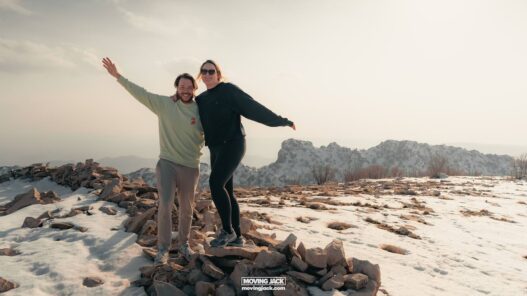
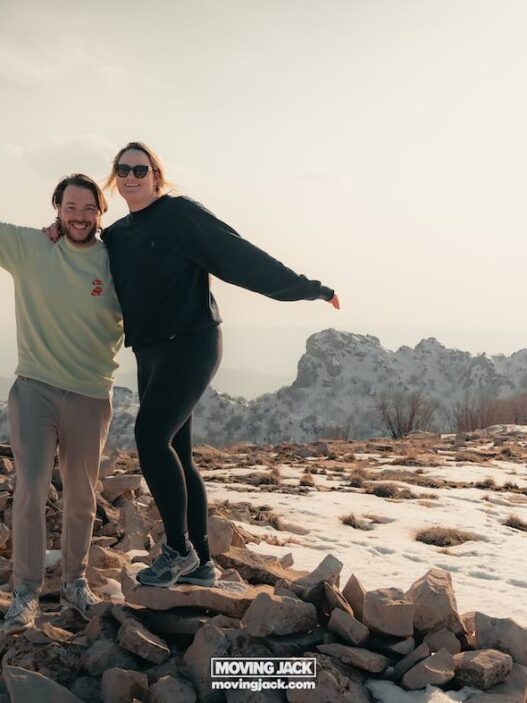
![Renting a car in okinawa: insider guide + 8 best budget tips [2025] 15 moving abroad for 3 months A small, sandy island with a few clusters of trees, a lifeguard tower, and clear turquoise water, viewed from a higher vantage point with greenery in the foreground. -copyright-moving-jack. Com](https://moving-jack.com/wp-content/uploads/2025/10/okinawa-japan-asia-beach-holiday-tropical-ocean-wjote-sand-outdoor-summer-shoulders-season-copyright-moving-jack.com-3-4-527x351.jpg)
![Renting a car in okinawa: insider guide + 8 best budget tips [2025] 16 moving abroad for 3 months A small, sandy island with a few clusters of trees, a lifeguard tower, and clear turquoise water, viewed from a higher vantage point with greenery in the foreground. -copyright-moving-jack. Com](https://moving-jack.com/wp-content/uploads/2025/10/okinawa-japan-asia-beach-holiday-tropical-ocean-wjote-sand-outdoor-summer-shoulders-season-copyright-moving-jack.com-3-4-527x703.jpg)





